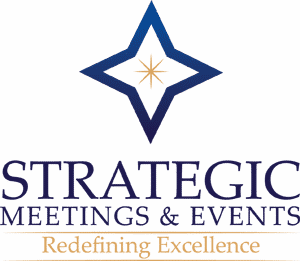Strategic Steps To Successfully Achieve Your Business Goals
By Christy Lamagna, CMP, CMM, CTSM
While there may be no such thing as a stupid question, there is a correlation between the smarter the question, the more in depth and valuable the answer will potentially be. That’s why when someone asks you to plan a meeting, regardless of how large or for whom, your first question needs to be, ‘What’s the goal of the meeting?’
 You may be told, “because it’s held every year” or “we need to have an annual sales meeting. That’s just what we do” or something equally vague yet definitive and entirely unhelpful. If the person asking for the meeting can’t articulate its purpose, how can you define what success looks like?
You may be told, “because it’s held every year” or “we need to have an annual sales meeting. That’s just what we do” or something equally vague yet definitive and entirely unhelpful. If the person asking for the meeting can’t articulate its purpose, how can you define what success looks like?
So how do you get to the answer? The first thing you do is interrupt the familiar process of simply diving in and instead, creating a new, deliberate, thoughtful, strategic plan. Don’t back down until you get an answer to the ‘why’ of the meeting. There are a few ways to approach this process, all of which are designed to give you the confidence to stick to the new plan, educate your audience and set yourself, the organization and the attendees up for success.
Host a ‘discovery session.’ My good friend Allison Saget taught me about these years ago and I’ve been holding these valuable meetings ever since. The purpose of these meetings is to get all the key decision makers into one place and focus on the ‘why’ of the meeting. The understood reason is to increase sales in some way, but there’s more to it, so don’t settle for “to improve revenue” as the answer.
Encouraging key stakeholders to dig in and do some real thinking will likely uncover a common challenge; each person has a different answer. You likely have your CEO, CMO and EVP of sales in the room, each with their own agenda. It’s your job to incorporate their (relevant) ideas into a cohesive message. Events, when executed strategically are an inseparable component of an organization’s sales and marketing plan, so those elements are bound to be a part of the answer.
So instead of, ‘holding a sales meeting to inspire the sales team to sell more’ a strategic goal would be, ‘offer the sales team an opportunity to train on the new product we’re launching and familiarize them with the corresponding marketing strategy.’ With that information in mind, you have a clear vision.
There’s one more essential task to complete before you declare success and dive into the next strategic step of the process. You need to make sure that your clearly articulated goal is what your audience needs to hear. It’s critical that the message being given is the one your target audience needs to receive. If you don’t ask your audience what they want, chances are you aren’t going to give it to them, which means they won’t attend at all (external audience) or they’ll leave dissatisfied (internal audience and perhaps an external audience.)
Find out how to do that in my next piece. Until then, follow me on Twitter: @SMEChristy, and take advantage of the free tools and information I’ve created here, and send me your feedback on what I’ve written by emailing me: Christy.lamagna@strategic.events.





